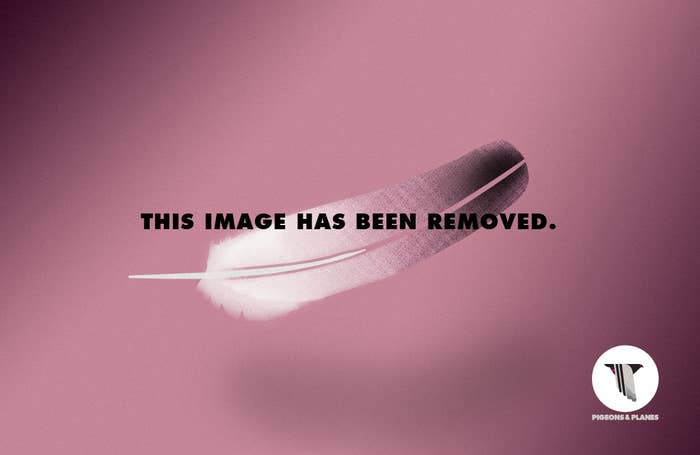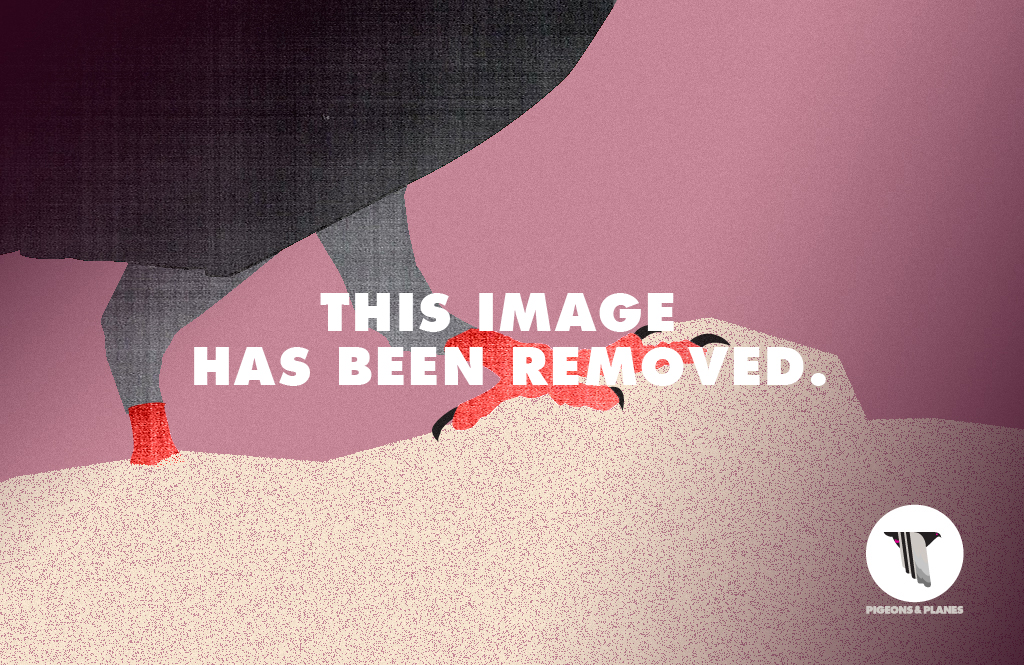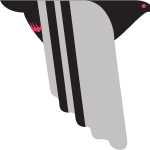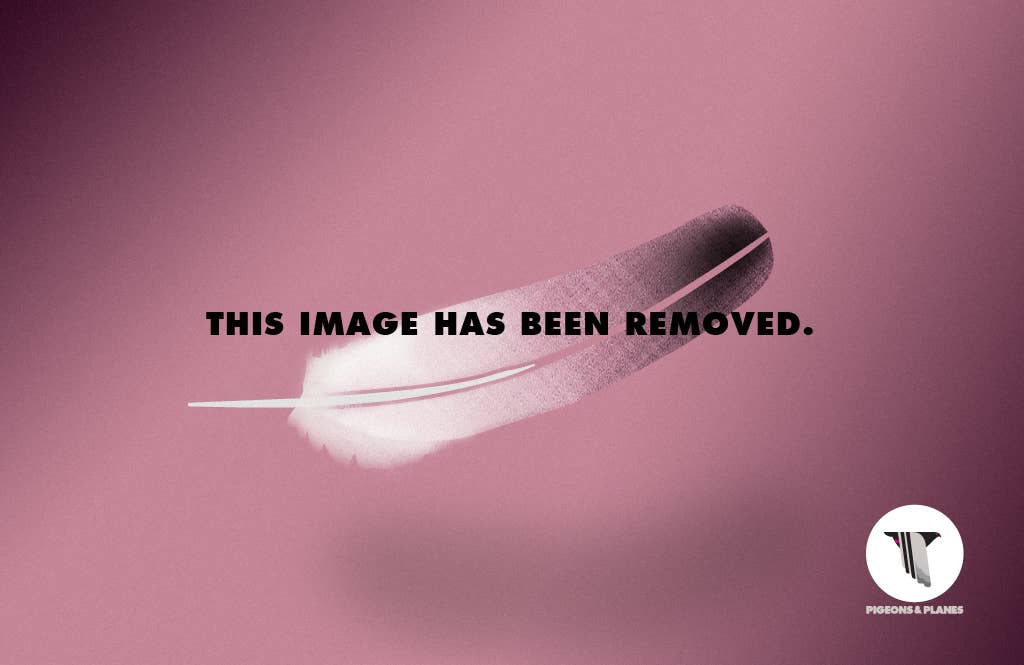1.

By Daniel Margolis
Now in its ninth year, Chicago’s Pitchfork Music Festival has transcended nitpicking about its lineup to become more of a lifestyle choice than a decision made by a careful consumer. With over 40 acts spread over three weekend days, the festival programs you rather than the other way around. Learning about and checking out the perhaps unfamiliar acts is a large part of the fun. But, some trends did emerge in a scan of the acts on hand. First off, Pitchfork advanced behind-the-scenes players to top slots at the festival. Secondly, the ‘90s nostalgia slowly gripping public consciousness seems to have reached the rarified air of Pitchfork. And finally, hip-hop, initially an afterthought of the festival, now dominates it.
3.

Image via Pitchfork
Influencers as Headliners
Artists who have mostly remained in the background came to the fore at Pitchfork this year—particularly in the realm of dance music. Chicago-based DJ Spinn has been a key presence in the Chicago dance music scene since the early ‘90s, collaborating with TEKLIFE’s legendary DJ Rashad, who died in late April. As such, Spinn’s Sunday evening set at Pitchfork doubled as a live performance and belated wake. It can be hard for even a DJ to get a dance party started at Pitchfork. Spinn just went ahead and created one on a stage packed with two dozen people, with a core group of eight competitively dancing as he switched beats as rapidly as the dancers switched moves. Numerous people onstage wore T-shirts with Rashad’s face on them, and at the end of the set, everyone was asked to “put L’s up” and shout the man’s name. The crowd and those onstage did so with such conviction, you’d think Rashad was being buried right then and there.
Numerous people onstage wore T-shirts with Rashad’s face on them, and at the end of the set, everyone was asked to ‘put L’s up’ and shout the man’s name. The crowd and those onstage did so with such conviction, you’d think Rashad was being buried right then and there.
Up next on the same stage was Hudson Mohawke, a Scottish producer best known by casual music fans for his work on Kanye West’s recent Yeezus. Running two turntables through a laptop and a mixer, with four massive stacks of amps facing him like a set of headphones, he energetically pounded the crowd with future-sounding beats that were alternately joyful and mesmerizing. It’s no wonder Kanye works with this guy.
Going on close to the end of the day on Friday, Giorgio Moroder introduced himself by saying, “My name is Giovanni Giorgio, but everybody calls me Giorgio”—exactly as he did on “Giorgio by Moroder” on Daft Punk’s Random Access Memories, the track that brought him a great deal of attention last year. He then played an hour-long set with just a laptop and a mixer, often dancing and conducting the crowd with his armed raised like an amiable grandpa. Judging from what he elected to play, it would seem Moroder views his work with disco queen Donna Summer as his most lasting legacy. He began his set with “Love to Love You Baby” and peppered more of her hits throughout; all as video footage of her splashed across the screens surrounding the stage.
He mixed in a bit of his own solo material, such as his 1977 track “From Here to Eternity,” along with hits like Berlin’s “Take My Breath Away” (which he produced) and Blondie’s “Call Me” (ditto). All of this was retooled for the modern era, laid over club beats. His big finish was a sped-up section of “Giorgio by Moroder” accompanied by animation of Daft Punk in robot costumes that it was difficult to believe they approved to be shown in public. This was obviously a charitable late-career victory lap, but a well-deserved one and the young audience loved it.
5.

Image via Pitchfork on Instagram
The ‘90s Are Back
The Pitchfork Music Festival has always played on nostalgia a bit, particularly back when it used to feature full album performances by legacy artists on Friday night. But this year sees artists who saw their heyday in the ‘90s in the line-up as featured performers. Beck, who headlined Friday night, hit his commercial and creative zenith in the ‘90s. He acknowledged this to some extent, trotting out his breakthrough hit “Loser” midway through his set but playing it more like an acoustic blues stomp. Similarly, he opened his set with “Devil’s Haircut” but treated it more like a psychedelic rocker than the hip-hop hybrid it originally played as on 1996’s Odelay.
For the rest of the set, Beck drew mostly from his more recent albums, alternately relaxing in the wide-brimmed hat he sports on the cover of his new album Morning Phase or stalking the stage, which was stocked with a seemingly endless supply of guitar amps, instruments and musicians. Beck noted the pleasant weather as unusual for Chicago in late July, adding “The Pitchfork gods are smiling on us.” The four songs he played from Morning Phase played well against the by-then tranquil festival atmosphere, particularly the Sea Change-esque “Blue Moon” and the Björk-like “Wave,” both of which he also performed on Saturday Night Live earlier this year. He treated the crowd to one song from Sea Change itself; the bittersweet “Lost Cause,” which his band infused with even more of a gone country lilt. He cleverly nodded to Giorgio Moroder, who’d just finished playing the opposite stage, by tagging Donna Summer’s “I Feel Love” on the end of “Think I’m in Love” off The Information.
After reenergizing the proceedings with the crowd-pleasers “Girl” and “E-Pro” off 2005’s Guero, it was back to the ‘90s for the encore. Beck spread police tape that read “CRIME SCENE DO NOT CROSS” across the stage, left, then reemerged to break “Sexx Laws” and hit on “Debra,” both from 1999’s Midnite Vultures. The latter’s lascivious come-ons were updated for the modern era, with references to online profiles and status updates. Beck closed things out with Odelay’s “Where It’s At,” which got a bit self-indulgent as he sat down and messed with a toy robot, played an unaccompanied harmonica solo in a different key and introduced the entire band.
Prior to her recent release in February, titled Blank Project, Neneh Cherry had not put out a solo album since 1996. She acknowledged her long absence in her afternoon set at Pitchfork on Friday, telling the crowd, “Last time I played in this country was in 1992. That’s how old I am.” The 50-year-old Cherry’s voice and look were remarkably well preserved, considering. Backed by the synth and drum duo RocketNumberNine, she was at times spiritual and spellbinding, at others spritely dancing and happy. Occupying a stage at Pitchfork, she felt like a forerunner to M.I.A. Her set mainly consisted of material from her new album, but, with one minute left in her allotted time, she did gamely perform her breakout hit “Buffalo Stance,” albeit in a different, slightly slower arrangement.
Elephant 6-affiliate Neutral Milk Hotel released just two albums—1996’s On Avery Island and 1998’s In The Aeroplane Over The Sea—before abruptly disappearing; the band’s success having apparently taken its toll on singer, guitarist and songwriter Jeff Mangum. So when the band returned to touring last year, it was a big deal, as their stature—particularly that of their second record—had only grown in the past 15 years.
For [Neutral Milk Hotel’s] set at Pitchfork, Mangum took things back not just to the ‘90s, but further, having Pitchfork staff announce that the audience wasn’t allowed to photograph or video-record him during the show. The enormous screens next to each stage projecting what was occurring onstage, omnipresent at Pitchfork, were shut off.
For their set at Pitchfork, Mangum took things back not just to the ‘90s, but further, having Pitchfork staff announce that the audience wasn’t allowed to photograph or video-record him during the show. The enormous screens next to each stage projecting what was occurring onstage, omnipresent at Pitchfork, were shut off. Tonight, it’d be just the audience and musicians, pointedly so.
As he would frequently the whole show, Mangum began playing and singing alone on a roughly mic’d acoustic, and after drawing this out for some length was joined by his band; five musicians armed with all manner of drums, bass, guitars, trombones, trumpets, French horns, accordions, air organ, bowed banjos and singing saws. This approach provided a set highlight in Aeroplane’s “Two-Headed Boy.” And Mangum pushed the intimacy of the performance further by singing un-spotlighted and retreating into the band when not singing. Despite, or perhaps because of, all these eccentricities, the vulnerable yet optimistic nature of the band’s material fit the crowd’s mood like a glove, though NMH did suffer a bit at a higher tempo and meander midway through the 80-minute set.
English shoegaze band Slowdive released just three albums from 1991 to 1995, and as such their current reunion feels unlikely. They took to the stage early Sunday evening with the sun still glaring. Hearing such introspective music in a large, boisterous crowd in broad daylight felt strange, but their shimmering, guitar-effects-laden epics proved enormously effective nevertheless. Every song sounded sort of the same, but in a good way; it made for blissful zoning-out. Lead singer and guitarist Rachel Goswell stood with a frozen, slightly dour look on her face during long passages in which she wasn’t doing anything. But at the end of the set she broke character to laugh, “We’ve played everything so far so we’re just adding in another song, basically,” which was a very English way to announce they’d be doing an unrehearsed encore.
7.

Image via Pitchfork on Instagram
Hip-Hop Continues Its Rise
When Pitchfork first started, hip-hop was underrepresented in its line-up, but it has steadily increased in dominance and the trend reached its apex this year. With eight rap acts appearing, this was like a mini-Rock The Bells.
Going on early Saturday afternoon, NYC veteran rapper Ka was an unexpected festival highlight. With no introduction or fanfare whatsoever, he unassumingly walked out right on schedule and started rapping dense street narratives. He cut an unlikely figure in an army green jacket, white T-shirt and close-fitting green pants, looking like he’d be just as likely to step onto a military base as a festival stage. After one song he stated he’d never been to Chicago and never performed in front of so many people before, adding, “If I fuck up I fuck up!”
He never did. Demonstrating a taste for soulful, cinematic beats, Ka was astoundingly cool and precise. He called to mind mid-‘90s Mobb Deep, but even they kept a whole crew around them and bothered with hooks. With Ka it was just him and a DJ and the hooks were nonexistent to subtle. Before doing “Summer” off his 2012 album Grief Pedigree, he explained this was his version of a summer jam, as he has “mixed feelings about the summer” since he’s seen so many friends die during the violence that erupts in urban areas during the season. As he was performing eight miles north of Chicago’s South Side, where gun violence is predictable on summer weekends such as this, it was a message that resonated.
Playing out later that day, Pusha T was a great deal less punctual and humble, beginning his set 33 minutes late with the unfortunate opening line, off “King Push” from last year’s My Name Is My Name, “This is my time. This is my hour” (when he only had 27 minutes left). Nevertheless, without acknowledging his tardiness in any way, he handily won over the crowd; almost unrecognizably energetic compared to the icy cool he exudes on record. He drew from My Name Is My Name and the tracks he contributed to on GOOD Music’s Cruel Summer and Kanye West’s My Beautiful Dark Twisted Fantasy—in all instances ending the song after a verse or two with a gigantic bomb sound. He played to the hometown crowd well by throwing in West’s remix of local-boy-makes-good Chief Keef’s “I Don’t Like.”
Taking the same stage an hour later, Danny Brown ignored the heat in an all-black outfit—including a leather jacket and leather pants. When Brown played Pitchfork in 2012, it was on the stage in the far corner and it was easy for a casual onlooker to get fairly close. This year, on a more prominent stage, he attracted a large, impenetrable crowd at a time of day when it had other options. Drawing roughly equally from his three albums to date, Brown just did not let up, and when he did, it was for sex rap like “I Will” and painful childhood introspection like “25 Bucks.” Late in the set he introduced himself with, “Hi, my name is Daniel!” and then cackled, suggesting he is firmly a Danny.
Earl Sweatshirt had pulled out of Pitchfork. On July 8 he tweeted, “I sincerely apologize to any of y’all who planned to see me at these next couple festival dates. Due to lack of self-maintenance I had to press eject on the tour.” But eight days later he abruptly announced, “aye Chicago I’m briefly stepping out the cave this weekend to come rap for y’all.” So come 3:20 p.m. on Sunday, there he was, as the schedule promised, with fellow OFWGKTA member Domo Genesis in tow. Sweatshirt’s material from his first proper release, Doris, rocked Union Park harder than the more bedroom-recorded sound of his debut Earl.
Earl also proved quite the comedian throughout his set, ruling out the second time he got the crowd to chant, “I’m a fuck the freckles off your face bitch,” by singling out a guy in the back of the crowd in a collar shirt and aviator glasses who wasn’t playing along, dubbing him “Brett” and addressing the next two or three songs to him—including a brand new song. When Domo shouted out Chicago’s R. Kelly as one of the greatest singers ever, Earl added, “What else y’all got? And don’t say the obvious stuff. Don’t y’all got a crazy meat area? Man, fuck y’all for making me feel weird about knowing stuff.”
Kendrick Lamar not only closed out the festival but made his influence felt throughout the entire weekend, as three members of his Top Dawg Entertainment crew played slots throughout.
Kendrick Lamar not only closed out the festival but made his influence felt throughout the entire weekend, as three members of his Top Dawg Entertainment crew played slots throughout. First up was female vocalist SZA on Friday, whose unassuming, breezy singing was well matched with her cute, friendly stage presence. She explained to the crowd she is from the Midwest, specifically St. Louis, but hadn’t been back in while, before exclaiming, “It smells like weed!”
She joined TDE labelmate Isaiah Rashad for the second song in his set two days later. Playing early on Sunday, Rashad somewhat eschewed hip-hop trappings such as crime and wealth in favor of energetically parsing out the realities of his day-to-day life, though that seems to involve a fair amount of weed and sex. He did so without a hype man, just rapping endlessly in a gruff voice over forward-leaning grooves that call to mind J Dilla and Hieroglyphics more than his label boss Lamar’s grounding in G-funk. This may be because he hails from L.A. by way of Tennessee, and as such exhibits the post-regionalism in hip-hop we’ve been hearing about so much these days.
On roughly an hour later, also TDE labelmate Schoolboy Q drew a much larger crowd than Rashad and played things way more high energy than Lamar, mainly spitting about weed, booze, promiscuity and vague threats of violence over bouncy beats, sporting one of his trademark hats and keeping things loud above all else. He may not reach for Lamar’s deep insights, but still definitely had the crowd on his side. He also had Earl Sweatshirt and Domo Genesis visibly hamming it up backstage.
Hours later, occupying the Sunday night closing slot reserved for R. Kelly last year, Lamar himself took to the stage to a much higher level of production values. A screen behind him projected visual vignettes from his native Compton as Kendrick led a guitarist, bassist, drummer and DJ through three-fourths of his breakout masterpiece—2012’s Good Kid, M.A.A.D City. He also threw in his verse from A$AP Rocky’s “Fuckin’ Problems” and then repeated this over a Snoop beat; tossed on 2Pac’s “Hail Mary” for a couple verses; and even did one track off 2011’s Section.80, “A.D.H.D,” as his encore.
Kendrick demonstrated that the video footage behind him was there for a reason, at one point stopping the proceedings to explain that the white wall we were seeing, which had “JESUS IS LORD AND HE LOVES YOU” painted on it, is right by where he grew up and it disturbs him to this day because he saw murders occur in front of and around it. Lamar then launched into a lengthy, off-the-cuff freestyle on the meaning of life. It was an appropriate ending to what had proven to be one of the most intense Pitchfork Music Festivals in its history.
Daniel Margolis is a freelance writer based in Chicago.

